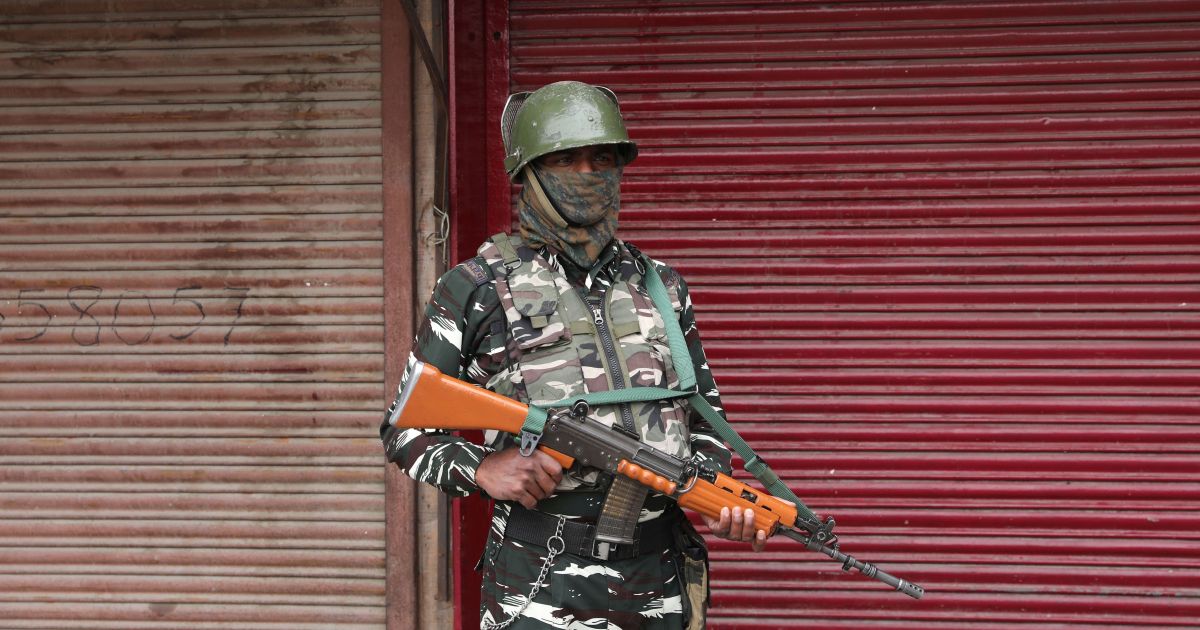Eight suspected rebels and two Indian soldiers have been killed in a series of counterinsurgency operations in Indian-administered Kashmir, officials said.
Many shops were shut in parts of the disputed region to mark the fifth anniversary of the death of a popular rebel commander whose 2016 killing triggered open defiance against Indian rule.
The deaths in five separate incidents starting on Wednesday came as violence in the Himalayan region has increased in recent weeks.
India’s military said two soldiers and two rebels were killed on Thursday in a clash along the Line of Control (LoC), the highly militarised de facto frontier that divides Kashmir between nuclear-armed rivals Pakistan and India.
The fighting erupted after soldiers intercepted a group of armed men who crossed into the Indian-administered portion of Kashmir from the Pakistani side of the territory, the military said in a statement.
It was the first such skirmish near the de facto border with Pakistan since February 25 when the two nations agreed to reaffirm their 2003 ceasefire accord.
The Indian military, in its statement, called the incident “a fierce encounter in which two foreign terrorists from Pakistan have been killed”.
Surge in violence
Earlier, the Indian army said its soldiers killed a suspected fighter who was infiltrating into the Indian side of Kashmir on Wednesday.
Four suspected rebels were killed in two separate gunfights with Indian troops in southern Kashmir’s Pulwama and Kulgam districts early on Thursday, the Indian military said. It said soldiers recovered two rifles and two pistols from the sites of the clashes.
On Wednesday, troops apprehended a senior rebel, Mehraj-ud-din Halwai, in the northwestern Handwara area. After interrogation, he led them to a hideout where he was killed in a firefight, police said in a statement.
At the hideout, Halwai “picked up his hidden AK-47 rifle and started firing indiscriminately upon the joint search party which led to an encounter”, the statement said.
Police said Halwai was wanted in several killings of police and village officials.
It was the second such incident in 10 days.
On June 29, police said a suspected rebel commander being held in custody was killed during a gunfight between government forces and another rebel after he was taken to a house where he had allegedly concealed a rifle in the region’s main city of Srinagar.
Many rebels have been killed in the past when they were taken by government forces to recover weapons, in what rights groups and residents have called extrajudicial killings.
At least 24 suspected rebels have been killed fighting Indian soldiers in the last three weeks.
Officials said 71 armed rebels were killed this year so far in the Muslim-majority region where India has at least 500,000 soldiers deployed.
The surge in violence came after Prime Minister Narendra Modi last month held talks with 14 pro-India leaders from the region, the first political engagement from New Delhi after it scrapped the region’s partial autonomy and divided the region into two territories in August 2019.
Fifth anniversary of Wani’s killing
On Thursday, many shops and businesses in the Kashmir valley, the heartland of the anti-India rebellion, remained shut to mark the fifth anniversary of the death of popular rebel commander, Burhan Wani.
Government forces patrolled streets and sealed off Wani’s hometown in anticipation of anti-India protests. Wani was killed along with two associates in a brief battle with Indian troops on July 8, 2016.
Separatist leaders called for a general strike to honour Wani, whose death led to months of huge protests and clashes in the region.
At least 100 people, mostly young men, were killed and thousands wounded, including many who were blinded by shotgun pellets fired by Indian troops.
Wani’s death gave a new life to the rebel movement, which had declined to only about 100 fighters in scattered groups. Officials say that since his killing, hundreds of young men have joined the rebels’ ranks.
There was no independent confirmation of any of the five incidents.
Rebels in Kashmir have been fighting Indian rule since 1989. Most Muslim Kashmiris support the rebel goal of uniting the territory, either under Pakistani rule or as an independent country.
India insists the Kashmir rebellion is “Pakistan-sponsored terrorism”. Pakistan denies the charge, and most Kashmiris consider it a legitimate freedom struggle.
Tens of thousands of civilians, rebels and government forces have been killed in the conflict.
